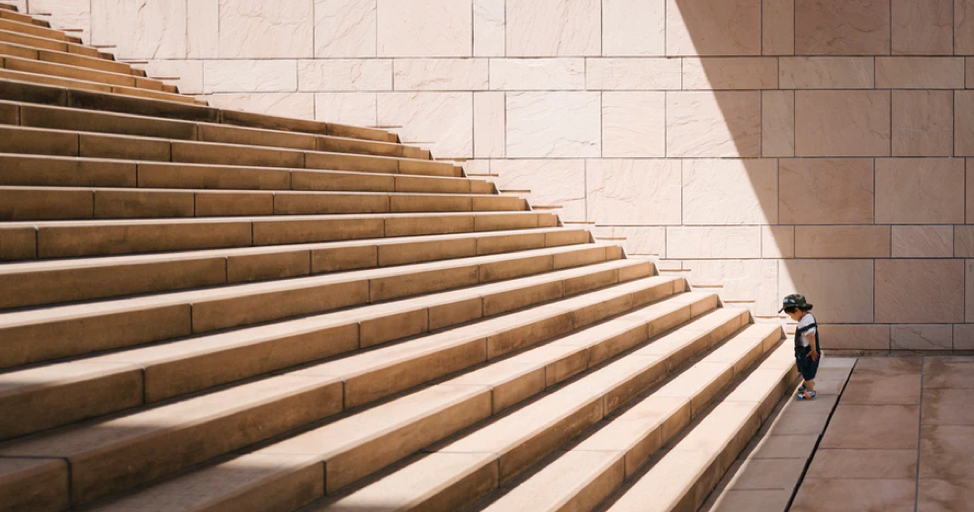Ask any of the most accomplished athletes, musicians, and artists in the world, and they’ll almost certainly say that they hit bumps in the road on the way to greatness.
Maybe it was an injury, bad review, or lost championship, but whatever the challenge, everyone who has pursued a craft has had to deal with difficulties and discouragement at some point. Encountering challenges—and overcoming them—is part of the journey toward mastery.
We can’t avoid challenges entirely, including setbacks, impatience, and plateaus. We can, however, prepare for when they come. Here’s how.
Don’t Let Setbacks Permanently Stop Progress
Mistakes and failures cause setbacks, and they’re a common reason to give up a craft. They are discouraging and can damage our self-image, but they are a natural part of learning and mastering any skill.
If we think of anything we’ve learned in life, it’s likely we didn’t get it right the first time. And as much as we don’t like setbacks, they play an important role in the mastery process. Mistakes and misses teach us what we need to improve, where to direct our focus, and even how to do better next time.
In the words of Thomas Edison, “Negative results are just what I want. They’re just as valuable to me as positive results. I can never find the thing that does the job best until I find the ones that don’t.”
The challenge with setbacks is not that they happen, but how we respond to them. Instead of taking them as a reflection of who we are (by thinking we’re failures!), we should try to learn from the experience and use it to do better next time. Embrace setbacks as a requirement of pursuing mastery and consider the only “failures” as not trying, not putting in the work, or walking away at the first sign of difficulty.
Mastery Takes Time, So Don’t Give in to Impatience
Another challenge we’ll face at different stages in our path is impatience. Starting out, our impatience will be about how long it takes to get better. This feeling often comes from unrealistic expectations.
We forget that even masters had to start from nothing and follow the same path. Picasso had to learn to draw before becoming a great painter, and Bach had to learn chords before composing his masterpieces. Everyone starts as a beginner, and everyone has to go through intermediate stages before reaching an advanced level. It’s a long process, and though some move through it faster than others, no one escapes it. We won’t either.
If we fight the process and become impatient, we’ll start jumping from method to method or teacher to teacher looking for an easier, faster way to get results. In the end, we’ll spend so much energy switching our approach that we never work on getting better.
Instead, we must push through this boredom and stick to practicing what matters most, even when it feels “old.” If we start chasing novelty, we’ll never reach the higher levels of our craft.
Plateaus Eventually End
The last challenge we’re likely to face is the plateau—a bottoming out where it feels like we’re stuck in place and unable to make progress.
Plateaus are periods where there’s little or no improvement (real or perceived) in our abilities. They can be discouraging because they feel like stagnation—no matter how much we practice we don’t seem to get better.
Plateaus happen for different reasons at different times. Sometimes, it might feel like we’ve hit a plateau when really we’re internalizing what we’ve learned. It takes time to fully absorb new information, and the brain might be subconsciously automating parts of our skills so we can free conscious energy to build upon them. While not as dramatic as progressing in leaps and bounds, this is its own type of improvement.
Other times, we actually do hit a plateau. These periods of real stagnation usually happen because we’ve reached a comfort zone and are no longer trying hard to improve. In other words, we become complacent.
To overcome plateaus, real or imagined, it’s important to recognize the cause. If our brain simply needs to process new information before we can move forward, the plateau will pass in time. If, however, we’ve hit a complacency plateau, we get past it by challenging ourselves and recommitting to the craft.
Perseverance Conquers All Challenges
As we pursue mastery, we will encounter challenges. The important thing, whether the challenge is a setback, plateau, our own impatience, or all three, is to persevere despite the hurdle. The only way we can truly fail is by giving up entirely.
As long as we continuously apply ourselves and work to improve our skills, every challenge we face will be nothing more than a temporary obstacle on the way to mastery.
